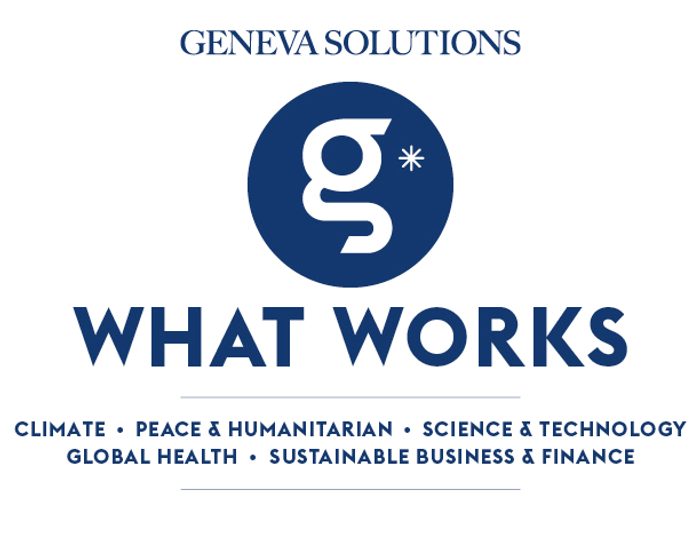Hi, this is Michelle. As Sri Lanka ushers into a new political era with the election of leftist leader Anura Kumara Dissanayake, many hope it will end years of economic turmoil and political instability.
However, the scars from the civil war run deep. According to human rights activist Fernando Ruki, confronting them is fundamental to Sri Lanka’s path to recovery. |

|

Ruki Fernando, Sri Lankan human rights activist, in Geneva, 23 September 2024. (Geneva Solutions/Michelle Langrand)
|
|
The victory of the leftist, anti-establishment candidate, Anura Kumara Dissanayake, in Sri Lanka’s presidential elections on Sunday has raised hopes that the country is at a turning point. The election, the first to be held since mass protests ousted the former leader Gotabaya Rajapaksa in 2022, was seen as a firm rejection of a political elite widely blamed for Sri Lanka’s debt default and economic collapse.
Dissanayake has vowed to weed out corruption, address the economic crisis that plunged millions into poverty and renegotiate the International Monetary Fund’s bailout. But a deeper national trauma hunts Sri Lanka – one that if left unresolved, could hinder the country’s recovery.
“The war in Sri Lanka led to a lot of human rights violations and ethnic polarisation, particularly between the Sinhalese majority and the Tamil numerical minority,” says Ruki Fernando as he quietly sips a hot cup of Ceylon tea. It’s 9 am, and a cool breeze drifts into the cramped kitchen of the apartment he’s staying in, a walk from Geneva’s train station.
Read the full story on Geneva Solutions.
|
|
Here's what else is happening
-
🇱🇧Lebanon crisis: 90,000 displaced in last 72 hours, warns refugee agency.
Citing the Lebanese authorities, the UNHCR said that more than 90,000 people have been displaced since 23 September and “more are abandoning their homes by the minute” as Israel escalates its strikes on Hezbollah targets.
UN News (EN)
-
🇸🇩Sudan’s army launches push to retake ground in Khartoum.
The army is carrying out heavy artillery and airstrikes in the capital, in its biggest effort to regain ground since the 17-month war against the Rapid Support Forces began.
Reuters (EN)
-
✍Opinion: The Geneva Conventions must not be used as smoke and mirrors.
The upcoming conference on international humanitarian law in the occupied territories in Geneva cannot ignore that what the Palestinians are suffering from is Israel’s flouting of international law with complete impunity, writes Yves Sandoz, honorary professor at the University of Geneva.
Le Temps (FR)
-
💉Race to combat mpox misinformation as vaccine rollout in DRC begins.
As millions of the first doses start to arrive, doctors and nurses are tasked with not only fighting the disease but countering widespread disinformation and conspiracy theories.
The Guardian (EN)
-
🇮🇱‘The UN betrayed us’: Israel’s ambassador in Geneva.
Daniel Merron, who took over as Israel’s permanent representative to the UN in Geneva in July, accused the international body of disproportionate criticism against it and said there had been far less condemnations of Hamas’s actions.
AFP via France24 (EN)
|
|
📈We need a new global measure for poverty.
The international poverty line of $2.15 per day, used by the United Nations to measure global poverty, has succeeded in drawing the world’s attention to the extreme poverty of the world’s very poorest people. But to end poverty in all its forms everywhere, a higher poverty line should be added that better reflects a world in which billions are struggling to pay for the bare necessities, argues Max Roser, the founder of Our World in Data and professor at the University of Oxford’s Blavatnik School of Government.
New York Times (EN)
|
|
|
GS news is a new media project covering the world of international cooperation and development. Don’t hesitate to forward our newsletter!
Have a good day!
|

|
|
Avenue du Bouchet 2
1209 Genève
Suisse
|
|
|
|








